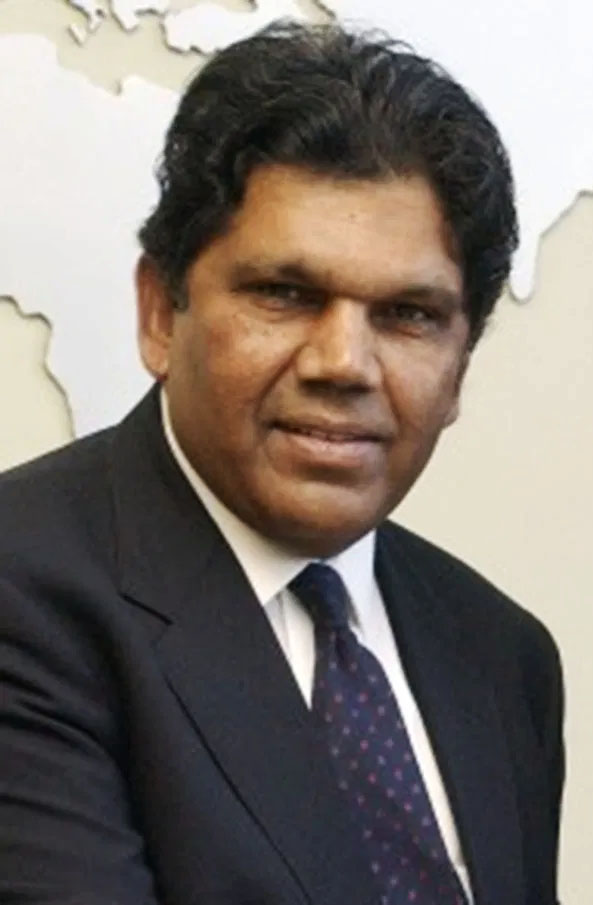By Dr Bertrand Ramcharan
Seventh Chancellor of the University of Guyana
Guyana, a still young nation with great promise but historical fault-lines, faces formidable national security challenges. An assessment of these challenges and of strategies for addressing them is critical to the future safety and prosperity of the country.
Lying beneath sea-level in its coastal areas, the rising Atlantic threatens the great majority of Guyana’s population, which lives mainly along the Atlantic coast. Sea defences are constantly under threat and it is a matter of the utmost urgency to plan to move the population to higher ground. Related to this existential threat from the rising oceans, and the global existential threat of climate change, there are environmental challenges to protect Guyana’s forests, flora, fauna and species, safeguard its air quality, and ensure the safety of its waters and waterways.
Venezuela’s aggressive claims to two thirds of Guyana’s national territory, including its territorial sea, continental shelf and exclusive economic zone, challenge our fledgling nation. Guyana has sought justice from the International Court of Justice, but Venezuela remains recalcitrant. Venezuela has on different occasions threatened to seize Guyana’s territory by force. The armed forces of Guyana number under four thousand, while those of Venezuela number in excess of a hundred thousand.
Another challenge is potential migration from neighbouring countries. Unmanaged migration may result in rapid and drastic changes to the identity of the nation. It could be only a matter of time before Guyana’s existing population of about 800,000 is overtaken by migrants. Migration has been a part of history and is quite natural. But it is in the national security interest of Guyana to manage it prudently.
Internal criminality and violence present formidable security challenges in Guyana. A profile on Guyana’s national security published in 2015 by the Geneva-Centre for Security Sector Governance (ISSAT), a global think-thank, warned that Guyana faces a unique and worsening security problem of its homicide rate: “Over the past decade the homicide rate has increased tremendously, there have been several instances of gang violence in the country. There has also been the rise of powerful drug trafficking organizations, which have demonstrated an ability to influence Guyana’s democratic institutions.” “Guyana, it added, had become home to relatively large-scale drug trafficking organizations.
Guyana’s homicide rate, ISSAT reported, had risen steadily to 18.4 homicides per 100,000, making it, in 2015, the fifth most violent country in South America after Venezuela, Colombia, Brazil and Ecuador. Armed robberies of businesses were common and the number of robberies and kidnapping was increasing. There was “a deteriorating level of citizen security” that could be attributed to street gangs and the rise of sophisticated drug trafficking organizations.
The ISSAT assessment claimed that “in major cities like Georgetown and Linden, some gangs have ties to the country’s two main political parties…These groups are more paramilitary in nature, and are organized along the strong ethnic divisions in the country. …Officials in both parties use their associated gangs to intimidate political opponents.” These are strong claims that we would leave to informed Guyanese to assess.
ISSAT added that on occasions, police had been known to establish arrangements with some gangs that had made regular payments to the force in exchange for license to operate. Roger Khan, for instance, “had several active duty policy officials on his payroll” Human rights groups claimed that “he also had low-level agents acting as ‘enforcers’ in the country, disappearing and killing more than 200 people between 2002 and 2006.”
According to the ISSAT figures, Guyana’s Police Force in 2015 numbered around 3000, while its armed forces numbered around 3,500, of whom around 1100 were active. The defence forces were reported, in 2015, to have had 15,500 firearms and the Police 2,500 firearms. The estimated number of guns, both licit and illicit held by civilians in Guyana in 2015 was estimated at 155,000. However only around 50 percent of these had been registered, “suggesting Guyana may play a role in the regional arms trade.”
ISSAT commented that “There is much to be done in order to reduce crime in the country and make Guyana’s security and justice institutions more effective and professional.” In its assessment, which we cite without ourselves endorsing, the judicial branch had been negatively affected by the ethnic-based political divisions in the country. Guyana had been ranked 93rd out of 144 countries for judicial independence in the World Economic Forum’s 2012-2013 Global Competitiveness Report. Moreover, in 2010, forty-one percent of prisoners in the country had not been tried or convicted and were being held in pre-trial detention “which can last for several months.” In 2012, Transparency International had ranked Guyana 133rd out of 176 countries. ISSAT asserted that “Police inefficiency and corruption are significant stumbling blacks to improving citizen security.”
Complicating the insecurity problem in Guyana was “a political culture dominated by divisions between the Indo-Guyanese … and Afro-Guyanese … with the former complaining of unfair victimization by the police and the latter of purposeful exclusion from power. This creates a political climate ripe for corruption and tampering with the judiciary branch, which only makes the crime problem more difficult to address.” The lack of a system of power-sharing is a major security challenge in Guyana. Modernizing the system of governance is overdue.
The foregoing suggests the need for an adequate national security architecture in Guyana. The current President has designated a National Security Adviser. India, in addition to a national security adviser, has a National Security Advisory Board that fosters public discussion and evaluation of national security challenges. Guyana needs an on-going discussion of national security challenges. An effective National Human Rights Commission could be helpful.

